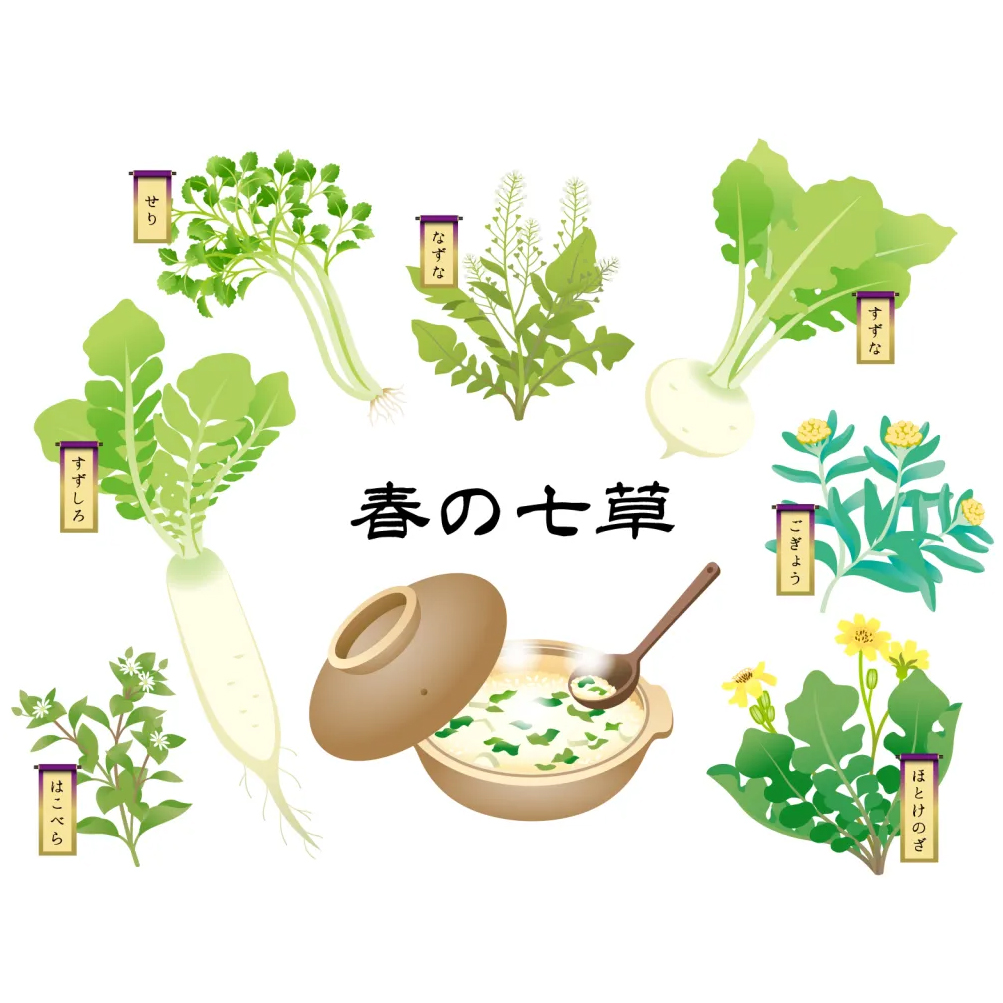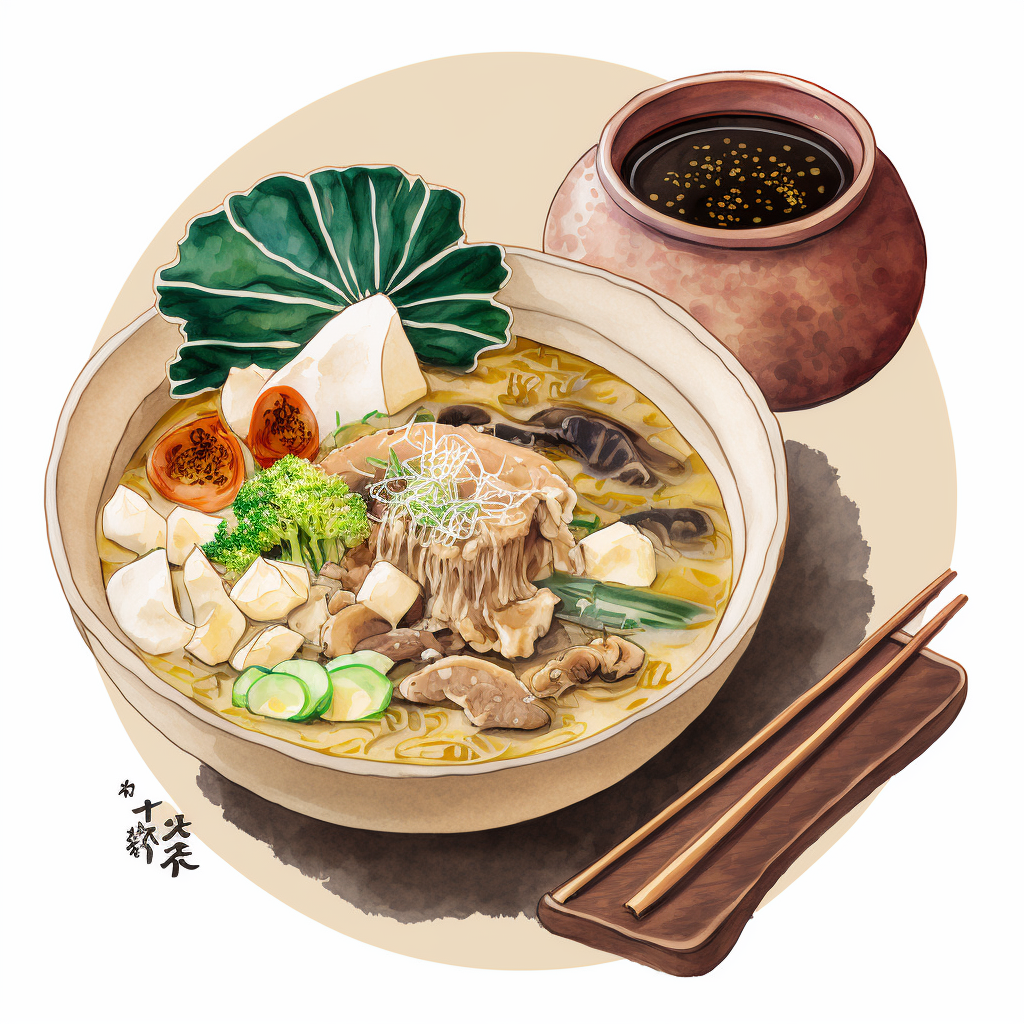Nanakusa Gayu, or seven herb broth (七草粥, nanakusa-gayu), is a Japanese culinary tradition. In fact, it dates back more than 1,000 years. So, every year, on January 7, the Japanese prepare a special broth. A broth made from seven different herbs to celebrate the start of the New Year. So in this article, we will explore the history of this festival of seven herbs, the ingredients and the cultural significance of this unique culinary tradition.
History of the Festival of Seven Herbs
The tradition of Nanakusa Gayu dates back to ancient Japan. It is associated with purification and renewal. Originally, the Japanese celebrated the New Year according to the lunar calendar, which began on January 1. January 7, called Jinjitsu, was considered a day of purification, where people cleansed themselves physically and spiritually to prepare for the coming year.
In addition, the broth with seven herbs was a way to purify oneself and nourish oneself with fresh and healthy ingredients after a period of celebrations and hearty meals. Thus, the seven herbs were chosen for their nutritional value and medicinal properties. Over time, the tradition evolved into a culinary celebration, where Japanese people share and enjoy the seven herb broth together to mark the start of the New Year.
Festival of Seven Herbs Ingredients
Seven Herb Broth consists of seven different herbs, which vary depending on region and personal preference. For example, the most common herbs are
- Oenanthe, Japanese parsley (seri, Oenanthe javanica)
- Shepherd’s purse, onion herb (nazuna, Capsella bursa-pastoris)
- Gnaphalium (gogyo, Gnaphalium affine)
- Chickweed or Intermediate Stellaria (hakobera, Stellaria media)
- Common lampsana, Buddha grass (hotokenoza, Lapsana apogonoides)
- Turnip (suzuna)
- White Daikon (suzushiro, Raphanus sativus var. longipinnatus)
Then the herbs are chopped and added to a rice broth, which is cooked slowly to infuse the flavors.
Cultural significance of Nanakusa Gayu
Nanakusa Gayu is an important tradition in Japan, which symbolizes renewal, purification and gratitude to nature. Indeed, the seven herbs represent the seven gods of happiness in Japanese culture. These are beneficial ingredients for health and well-being. Additionally, Seven Herb Broth is also a way to connect with the traditions and culture of ancient Japan, celebrating a culinary tradition that has survived for centuries.



